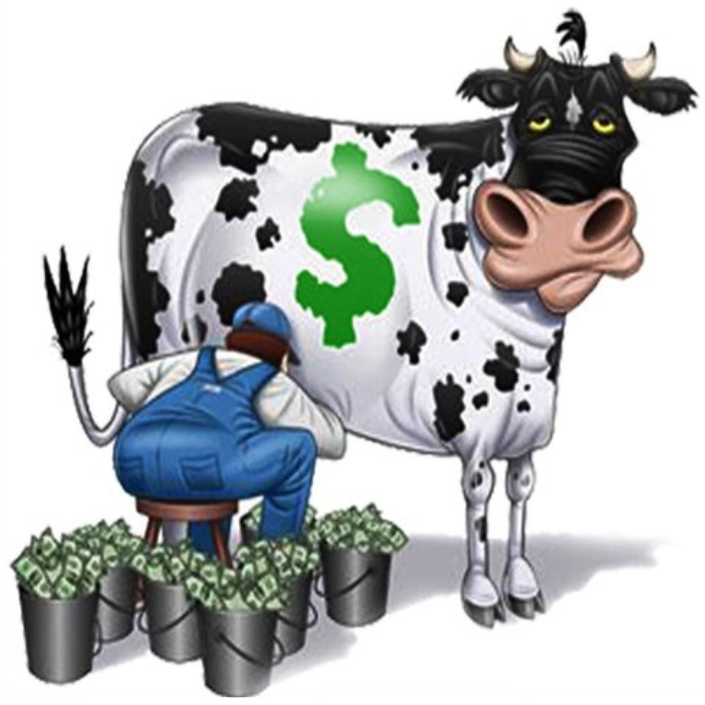Ensuring that you have a solid retirement plan in place is crucial. Pensions are largely a thing of the past, and the future of Social Security is up in the air. So if you don’t save enough in your 401k over the course of your career, you may not get to have a retirement at all.
Knowing this, I’m being conservative with my retirement planning. I’d much rather save more than I need for retirement and pass down the extra money to my future kids than outlive my nest egg. To be safe, I’m choosing to base my retirement plans on the assumption that the market will generate more modest returns than it has in recent decades.
However, if you have a higher risk tolerance, you may prefer a different approach. Here are some things to consider when deciding what rate of return you want to build your retirement plans around.
Why Does Rate of Return Matter?
The average rate of return of the stock, bond and other markets affects your retirement plans because it determines how much your investments will grow over time. If the stock market yields an average annual return of 10% during your lifetime, you’ll end up with a much bigger nest egg than if it produces a 7% return. For reference, the S&P 500 has yielded about 10.49% per year from its inception in 1926 to 2021 before inflation—or 7.37% after accounting for inflation.
To formulate a retirement plan and decide how much money to save, you have to make an educated guess about the stock market’s future performance. For example, if you fear the stock market will underperform during your lifetime, then you may want to bump up your savings rate.
My Investment Approach
Personally, I use a conservative 5% return in my retirement calculations because I worry that climate change could shake up the stock market and decrease returns. To hit my retirement savings targets at this lower projected rate of return, I have to put more money in my 401(k) every month. My spouse and I are currently investing about $700 per month to meet our goals. But if we were comfortable basing our retirement projections on historical returns of 7%, we wouldn’t have to save as much.
For example, investing $700 per month for the next 30 years results in a $558,000 nest egg if you earn 5% per year. However, earning a 7% average return would increase the size of that nest egg to nearly $800,000. If you only needed around $550,000 to cover your expenses in retirement, you could drop your monthly investment to just $500 and put the rest of that money toward other financial goals.
As you can see, adjusting your average estimated return by a few percentage points makes a big difference. So it’s important to pay attention to small details when you’re planning for retirement.
Which Approach Is Right For You?
I take a very conservative approach to investing and hope for the best while planning for the worst. However, that may not be the right strategy for you. If your portfolio is mostly made up of high-growth stocks or you have a long way to go before retirement, you may feel comfortable using a higher rate of return for your retirement projections.
The longer your investment horizon, the more time your portfolio will have to recover from big shocks. So you may be able to afford to use a higher estimated return and save less if you’re in your twenties or thirties. Some people estimate that they’ll earn as much as 12% per year on their investments before inflation, which is in line with the S&P 500’s annualized average return since 1957 of 11.88%. However, most financial experts agree that expecting 10% returns before inflation (and 7% after) is a safer bet.
Wrapping Up
Ultimately, it’s up to you to decide what rate of return you want to base your retirement plans on. However, when it comes to something as important as retirement, it may be best to play it safer and work with a fee-only financial advisor to make sure you’re on the right track.
As bit of a final note, if you wanted to drastically reduce your retirement costs, you could always consider retiring abroad. Foreign countries such as Coasta Rica, Mexico or Romania are popular due to their low cost of living and merit your
Read More
Quiet Retirement: The Retire In Place Early Retirement Strategy
5 Things You Should Never Buy Used
Is Being a Minimalist Costing You Money?
Is Social Media Bad For Your Finances?
Vicky Monroe is a freelance personal finance and lifestyle writer. When she’s not busy writing about her favorite money saving hacks or tinkering with her budget spreadsheets, she likes to travel, garden, and cook healthy vegetarian meals.





I don’t see how climate change is going too affect my investments In the future. But I’m not a firm believer in the theory that buying a overpriced electric car is going too help the environment.